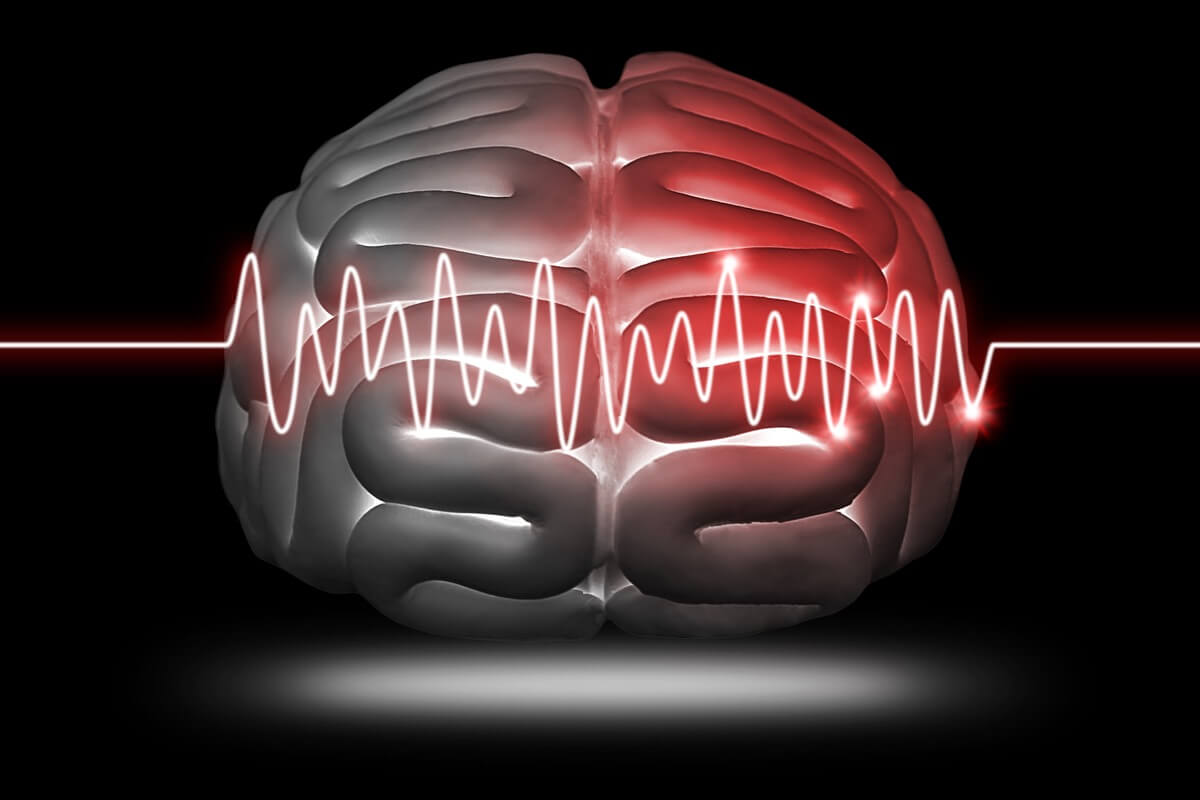
Each year, millions of Americans suffer from accident-related injuries. In fact, car accidents alone cause 4.5 million medically consulted injuries annually, and ~3% of all workers were involved in an injury-resulting accident in 2019. Accident injuries range from mild to severe, and many walk out with a few bruises on their arms or minor scratches on their legs. However, not everyone’s injuries are minor. One of the scariest categories of accident-related injuries are traumatic brain injuries. When bruises, scratches, and impacts happen to the brain, the physical and financial burden can be tremendous.
What Are Traumatic Brain Injuries?
Traumatic brain injuries (TBIs) are injuries that affect the brain. According to the CDC, the majority of these injuries happen as a result of accidents — like motor vehicle collisions and workplace falls. Most TBIs are caused by either blunt force trauma to the head or a penetrating object. Sadly, over 61,000 Americans lose their lives to TBIs each year, and hundreds of thousands more suffer from debilitating injuries.
Like any bodily injury, TBIs come in a variety of forms. Some accidents cause minor concussions that clear within a week, while other accidents may cause long-term injuries that require months or years of significant care. The severity of the accident doesn’t always match the severity of the injuries. Many people face significant injuries from minor car crashes or slips. So, it’s important to get a medical evaluation after any accident.
Symptoms of Traumatic Brain Injuries
Depending on the cause, type, and severity of your TBI, you may experience symptoms such as:
- Headaches
- Fatigue
- Loss of balance
- Problems with speech
- Sensitivity to light and/or sound
- Blurred vision
- Ringing in ears
- Changes in smell or taste
- Loss of consciousness
- Disorientation
- Difficulty sleeping
- Feeling anxious, depressed, or irritable
- Trouble concentrating
- Memory issues
- Seizures
- Fluids draining from eyes or ears
- Numbness in fingers, toes, or other extremities
- Loss of coordination
You should always see a doctor after any type of accident that results in a blow to the head. If you’re experiencing any of the symptoms above, it’s crucial to get tested for any potential brain injuries. The sooner you find and treat these injuries, the better.
Common Types of Traumatic Brain Injuries
Like back injuries and neck injuries, TBIs come in a variety of shapes and sizes. Here are a few of the most common TBIs. But there are plenty of other types of brain injuries, so always get medical help first thing after an accident.
Coup-Contrecoup
A coup-contrecoup brain injury happens when the skull jerks forwards and backward suddenly, causing the brain to receive injuries on both sides (i.e., the brain impacts the skull in two separate areas). This type of TBI can happen in car accidents — as it’s often a result of whiplash. While coup-contrecoup injuries share many of the same symptoms as other brain injuries, it’s often one of the most difficult injuries to diagnose. Doctors may see one side of the injury and hyper-focus on treating that specific site. In the case of coup-contrecoup injuries, there are actually two injury sites that need medical attention.
Contusion
In the medical world, “contusion” is another term for bruising. So, a brain contusion refers to a bruise on the brain resulting from the accident. Depending on the nature of the contusion, you may also have bleeding or significant swelling. In addition, contusions can lead to hematomas — which can be life-threatening in some situations.
Concussion
Unlike contusions and coup-contrecoup injuries, concussions are rarely associated with any bruising or bleeding. Instead, most of the damage involves chemicals and cells in your brain. When your head jolts around in an accident, it can cause your brain to shake violently. This may lead to a variety of symptoms. In general, concussions are a medical emergency. However, they can be challenging to diagnose. Many people with concussions only feel symptoms days or weeks past the initial injury date.
It’s crucial to visit a medical professional after an accident. Brain injuries like concussions can stay hidden.
Diffuse Axonal Injury
Accidents are unpredictable. Whether you’re a pedestrian involved in a collision with a vehicle or suffer from a nasty workplace slip, your head may go in a variety of different directions. When this happens, you can suffer what’s called a diffuse axonal injury. As your brain rapidly bounces around your skull, axons (which are long fibrous cables connected to neurons) may get stretched and snap. These axons play a crucial role in your overall brain function. Those with diffuse axonal injuries often fall into comas, lose consciousness, and suffer from a wide variety of dangerous symptoms.
Unfortunately, diffuse axonal injuries are also incredibly difficult to detect using traditional medical imaging. These axons are microscopic, and finding the exact damaged area can be challenging for medical professionals. If you lose consciousness after an accident, you need to visit the emergency department immediately to receive specialized care.
Penetrating Injury
If something penetrates into your brain during an accident, you need immediate medical attention. This is often an immediately life-threatening injury. While penetrating injuries are the easiest to diagnose, they’re also one of the most dangerous TBIs.
Treating Traumatic Brain Injuries
You should always visit a medical professional after any accident to assess your injuries. Catching TBIs early may be crucial for your overall injury outlook. While some TBIs are treated with simple medications, others may require lengthy hospital stays and around-the-clock monitoring. Do not listen to any online blogs, forums, and social media outlets for TBI medical advice. See a doctor and get the help you need.
Remember, TBIs cause both physical and mental symptoms. Your brain is an incredibly complex organ. It controls your thoughts, emotions, language, feelings, and memory. Brain injuries can impact all of these semi-intangible mental components. And while it may be challenging to measure and analyze these damages, they’re very real. Often, those that suffer from TBIs undergo care from multiple disciplines, including surgeons, physical therapists, mental health professionals, and emergency care doctors.
Contact a Personal Injury Lawyer
Being involved in a car accident, especially one caused by a drunk driver, often brings a multitude of questions about insurance settlements and your rights. To better understand how insurance payouts work in such scenarios, it’s recommended to be informed. In addition, victims in New Orleans might be curious about the time frame for claiming injury compensation after an accident. Knowledge about Louisiana car accident laws can be instrumental in ensuring you get the justice you deserve. Moreover, for those unfortunate enough to have experienced bicycle accidents, understanding specific regulations is crucial. Lastly, figuring out the right amount to claim can be intricate, but with the right guidance, you can ensure you’re compensated fairly.
Brain injuries are a common type of accident-related injury. Without the right medical care and equipment, many TBI victims suffer from significant injuries or even death. Depending on the nature of your injury, you may face a mountain of medical bills, ongoing rehabilitation, missed workdays, and new mental health disorders. If you or a loved one has suffered a TBI as a result of an on-the-job accident, car accident, or recklessness of another individual, contact Alvendia Kelly & Demarest online or at 504-200-0000 for a free consultation. You may deserve compensation to help with missed workdays, emotional damages, medical bills, and rehabilitation.
Categories
- Bicycle Accidents
- Car Accident
- Case results
- Class Action
- Community Aid
- COVID-19
- Fun
- General
- Hard Rock Lawsuits
- Holiday
- Insurance Claims
- Legal Advice
- Mardi Gras Accident Attorney
- Mass Tort
- Medical
- Motorcycle Accident
- Personal Injury
- Practices
- Premise Liability
- Recent News
- Safety
- Truck Accidents
- Uncategorized
- Weather
- Work-Related Accident

In 2003, after being dissatisfied with the quality of legal care for victims of car accidents, Roderick ‘Rico’ Alvendia sought to establish a new firm focused on providing high-quality legal services to aid injured victims and their families. J. Bart Kelly, sharing Rico’s passion for upholding justice, joined the firm later that year, and established a partnership.






